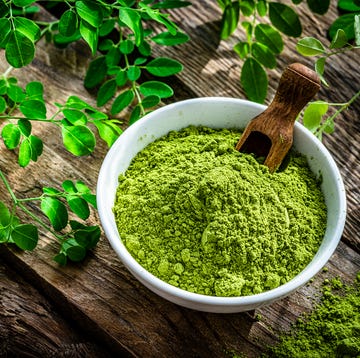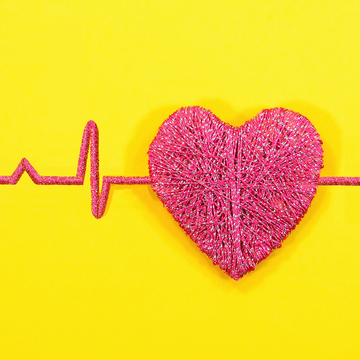11 Foods That Can Help Support Better Mental Health
Your diet may be more connected to your mood than you think.

It’s becoming more common for health professionals to look at the entire lifestyle of their patients when providing care, instead of simply prescribing meds. Even if you're getting evaluated for mental health concerns, they may ask about your sleep and exercise patterns, your stress level and yes, your diet too.
“In general, psychological science is getting better at understanding the link between the foods we eat and the way we feel,” says Kristina Pecora, Psy.D., a licensed clinical psychologist in Chicago. “We know that food contains nutrients and certain nutrients have effects on mood.” In fact, a 2023 study found that certain nutrient deficiencies can negatively impact your brain and nervous system and are linked to symptoms of depression.
If that seems far-fetched, put on your science and chemistry hat for a minute. At a basic level, the nutrients in the food you eat serve as precursors or building blocks for chemicals called neurotransmitters. When neurotransmitters are released in your body, they act as messengers to trigger other things to happen such as the movement of muscles or the feeling of emotions. For a simplified example, the neurotransmitter serotonin makes you feel energized while dopamine makes you feel alert. However, research shows that when neurotransmitters are off kilter, it can cause an array of disorders including depression, insomnia and anxiety.
“What we eat has a direct impact on our brain chemistry, hormone production and gut health — all of which influence our mood and emotional well-being,” says Emily Morgan Martorano, R.D.N., CDN, LDN, the founder of EM Nutrition Group. “A diet high in ultra-processed foods and refined sugars and low in fiber can contribute to inflammation and gut dysbiosis, both of which have been linked to depressive symptoms.” A 2023 study actually found that women who eat a lot of processed food (about nine servings a day) were 50% more likely to have depression symptoms than those who ate less than half that (no more than 4 daily servings).
Martorano says that eating healthy foods helps support the production of neurotransmitters, which are keys to emotional regulation. A well-balanced diet helps your brain receive the nutrients it needs to function well such as omega-3 fatty acids, B vitamins, magnesium, zinc, iron, potassium, vitamin D, vitamin C and vitamin E, according to the Substance Abuse and Mental Health Services Administration.
Rather than consuming large amounts of specific nutrients, though, Martorano says it’s more important to focus on consistency and diversity. She recommends aiming for 3 to 4 nutrient-dense foods each day that support mental health. Below are 11 of the best foods to help reduce symptoms of depression.

Gillean is a media dietitian with over a decade of experience working with brands through TV, content creation, and consulting. She’s the founder of the What’s for Dinner Club, a resource that provides healthy, easy dinner recipes for busy families. As a mom of 3, she knows how overwhelming it can feel to make your nutrition and priority, so through her work she strives to make nutrition simple and convenient. Gillean is also the co-founder of a media training program called Expert with Influence, with the goal of helping health experts grow in the media space and be a source of reliable, credible nutrition information.

Readers Also Read

Inspirational Quotes to Start Your Day

Your Guide to the Mediterranean Diet

Should You Be Trying Moringa?

15 Healthy Foods That Are High in Iron


















